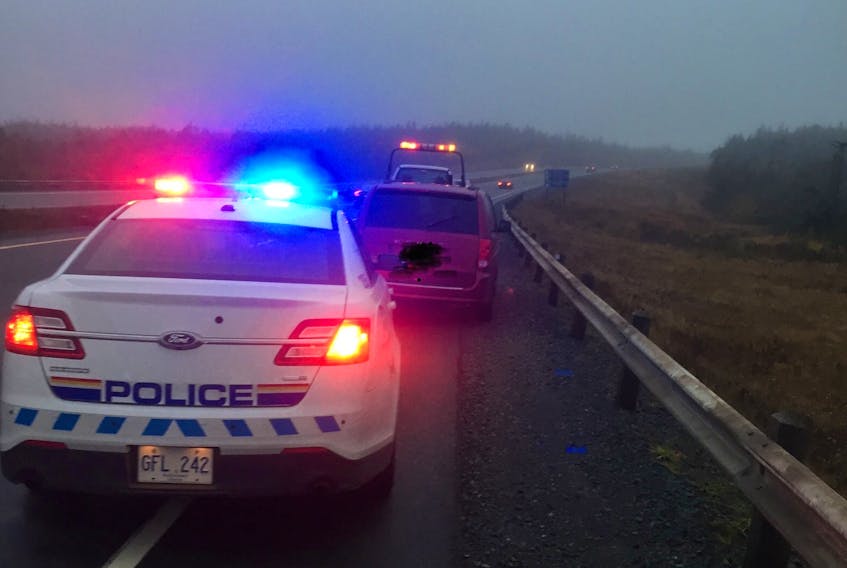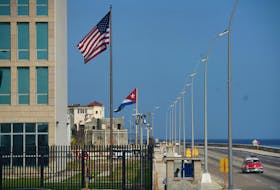It’s not exactly a great ratio: police stop 3,515 cars and lay 1,131 charges.
But that’s what RCMP officers did in this province between May 14th and 20th.
The stops were part of Canada Road Safety Week, which the police highlight by focusing on highway patrols.
But the numbers of violations the RCMP found should give all drivers pause. First, the most serious: in seven days, the police patrols charged 10 drivers with being impaired. If the same number of drivers suspected of being impaired were caught on a weekly basis over a full year, that would mean there were at least 520 drunk drivers on the road. (And that would only be the ones who were caught by the RCMP.) Another eight drivers received roadside suspensions for having blood alcohol levels between .05 and .079.
Think drinking and driving is a thing of the past? Well, think again. Imagine how many drinking drivers you pass on the road.
There were some other significant numbers in the RCMP’s list of traffic violations as well. Twenty-three drivers were caught driving without insurance on their vehicles. That sounds like a high number until you consider recent claims by the insurance industry that some 30 per cent of drivers in the province don’t have insurance. If one out of every three drivers was actually driving without insurance, you’d think that number would be significantly higher.
Think drinking and driving is a thing of the past? Well, think again. Imagine how many drinking drivers you pass on the road.
But one set of numbers is an example of something we are probably all guilty of at one time or another — the RCMP pulled over and charged 718 drivers with speeding. Of those, 62 were doing more than 31 kilometres an hour over the speed limit.
We all hear regularly about the extraordinary cases. Both the Royal Newfoundland Constabulary and the RCMP make a point of issuing news releases and even social media posts about drivers who are travelling at extremely excessive speeds — it’s a rare week that there isn’t news of someone being clocked travelling at 150 kilometres an hour or more.
But as last week’s ticket totals show — along with traffic camera information about speeders in construction zones that was recently collected by the provincial government at three sites — we’re a lead-footed bunch who seem to take speed limits more as recommendations than requirements.
There’s a lot of risk involved in higher speeds.
Crashes are more serious and fatalities are more common as speeds increase. Your recovery and reaction times are much shorter, your car travels greater distances before you can stop. The effects of rain, standing water, slush and snow are more pronounced.
And the risks aren’t just to the driver, they extend to every passenger in your car, and every driver and passenger in any other vehicle you may end up in a collision with.
There are lots of risks you can’t control. But if you’re driving, your speed on the highway is one thing you absolutely can control.









